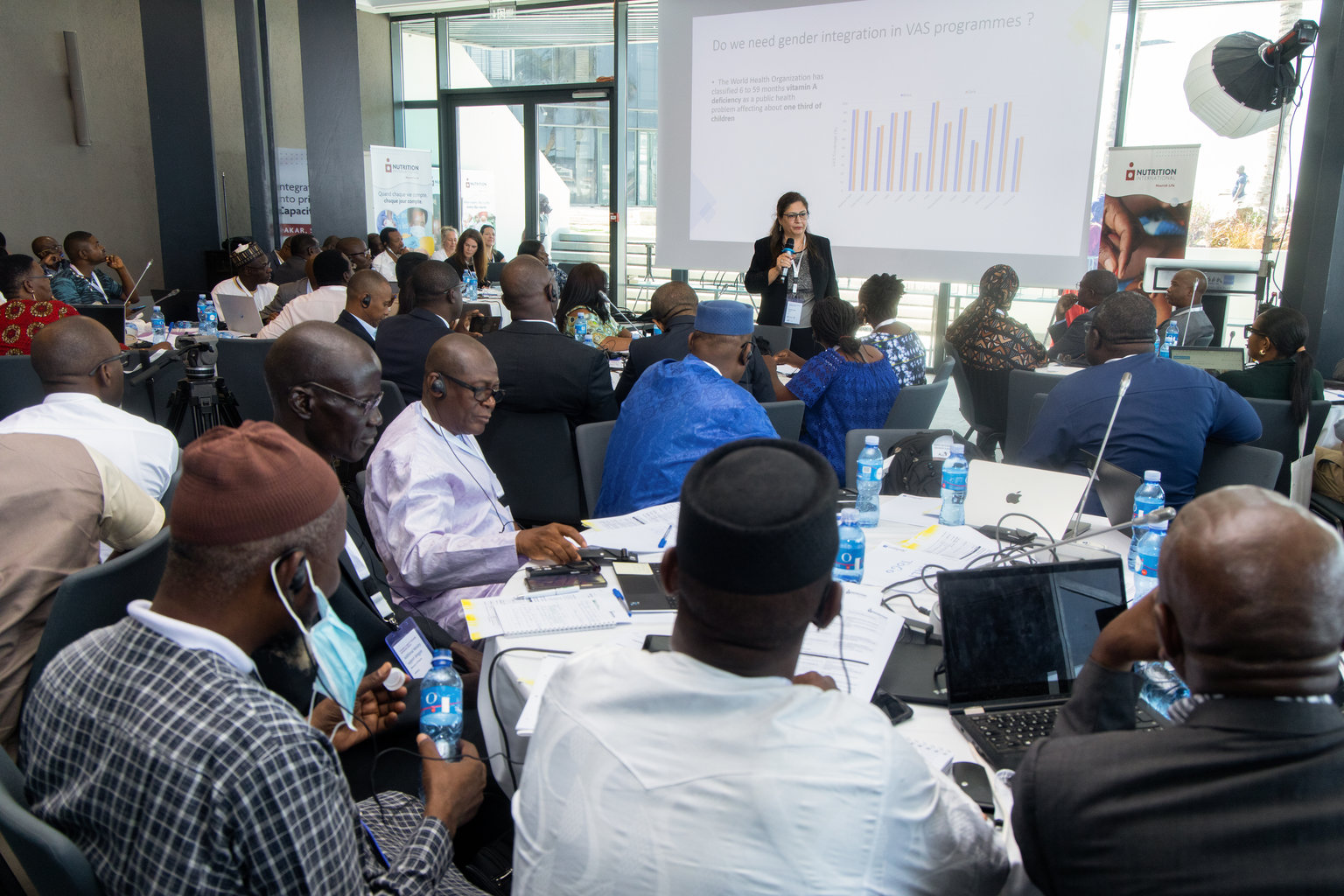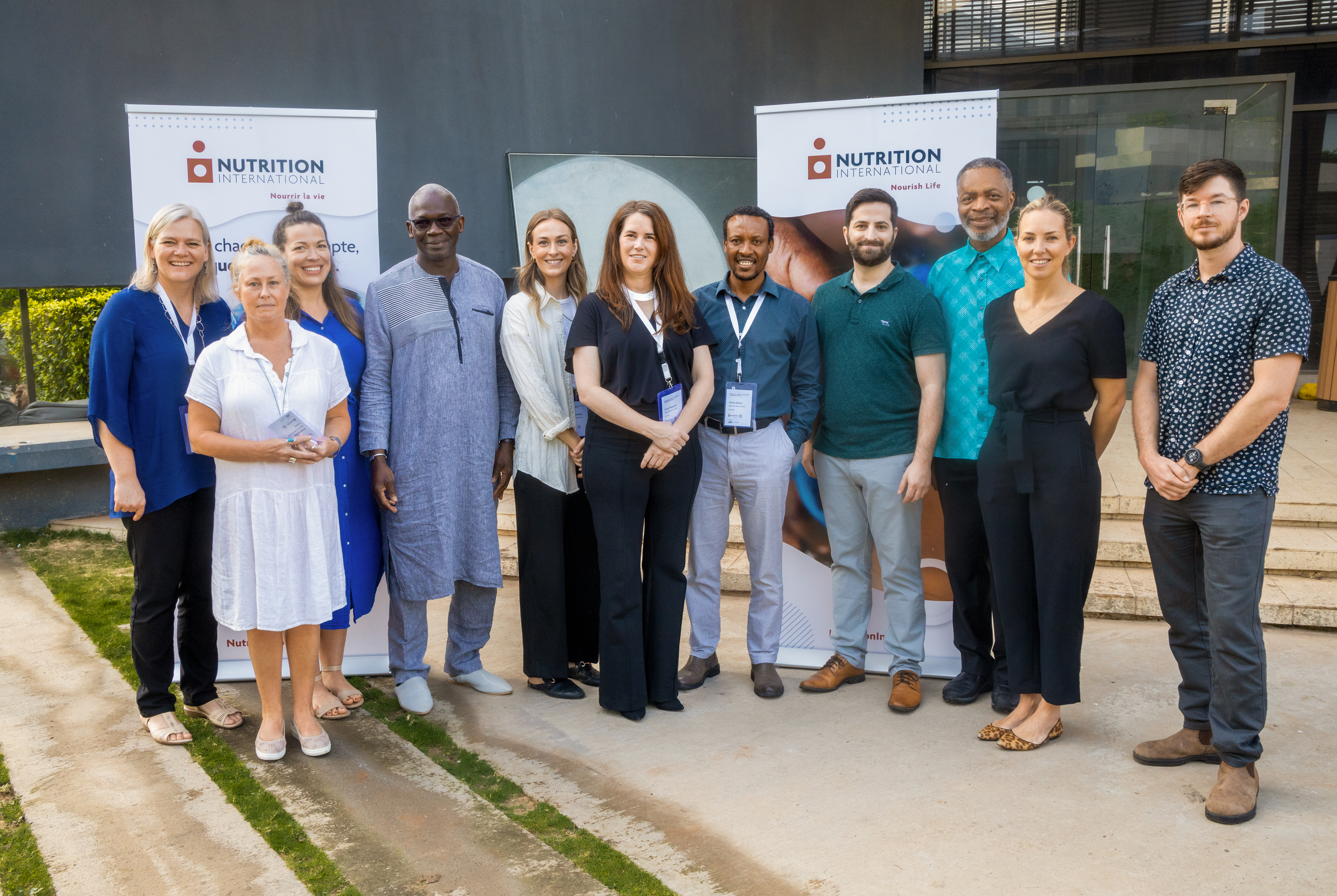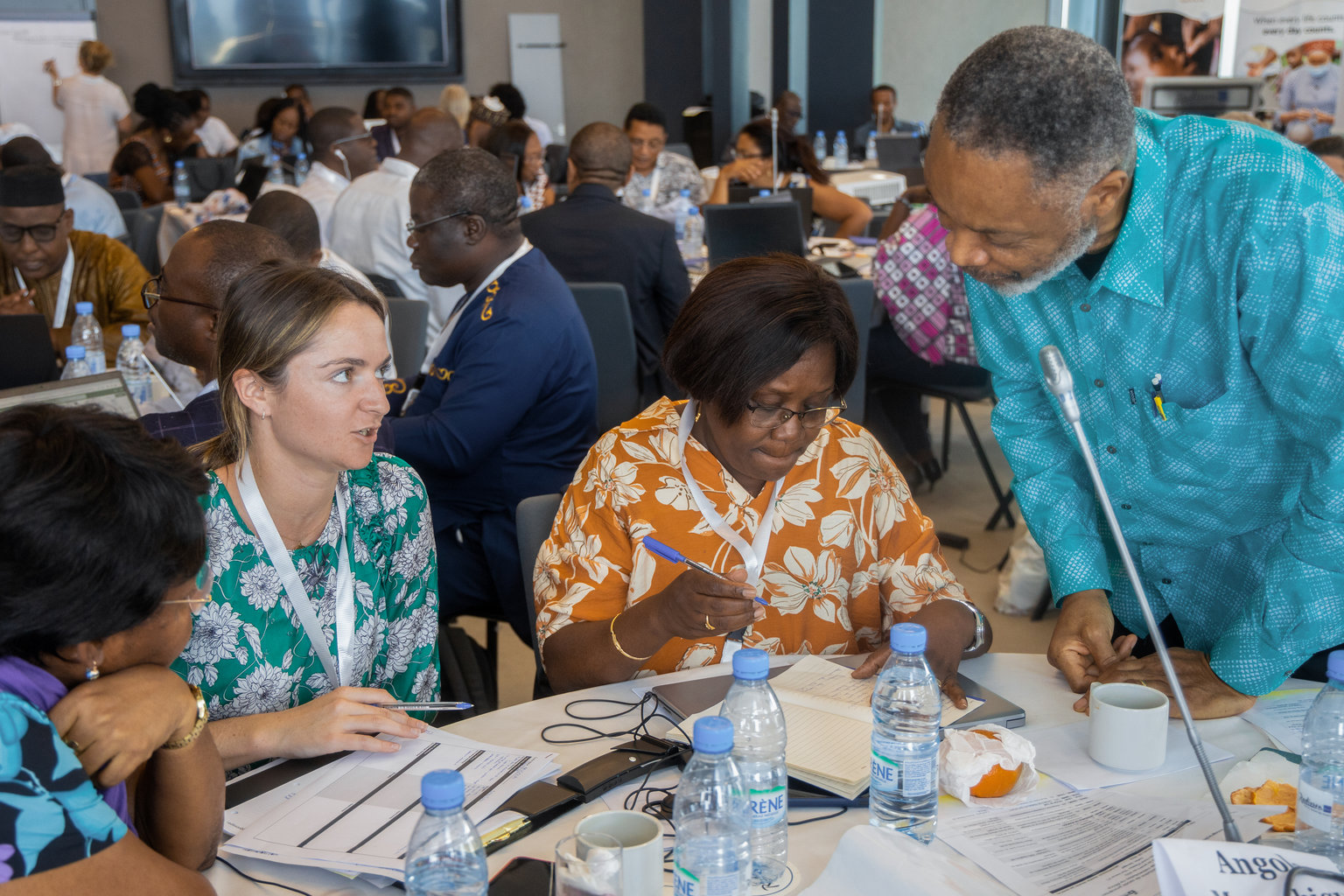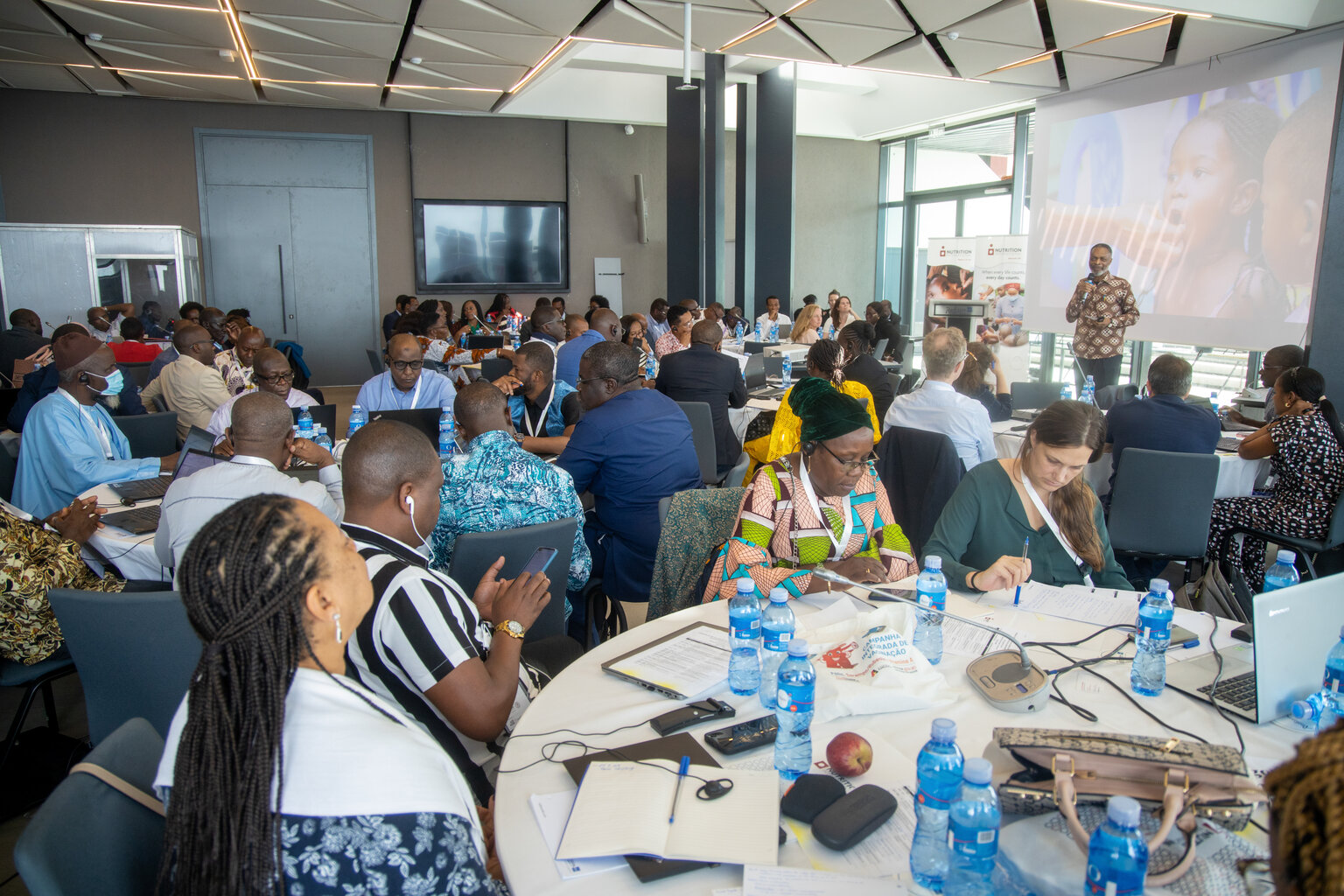News
Nutrition International highlights Canada-Africa partnership to advance nutrition, health and education goals
November 18, 2024
WP_Term Object
(
[term_id] => 48
[name] => News
[slug] => all-news
[term_group] => 0
[term_taxonomy_id] => 48
[taxonomy] => news-category
[description] => Stay up to date on our announcements, newest projects and partnerships, and news about how we’re making a difference in the lives of people around the world.
[parent] => 0
[count] => 272
[filter] => raw
)
Nutrition International convenes regional technical meeting on vitamin A supplementation for child survival in Africa
Delegates from 16 countries took part in the three-day meeting, which focused on what is needed to achieve high coverage of vitamin A supplementation delivered through routine primary healthcare systems.
Posted on February 3, 2023
Dakar, SENEGAL ‒ From January 24 to 26, Nutrition International convened partners to a three-day regional technical meeting aiming at accelerating vitamin A supplementation (VAS) in Africa. The meeting was attended by more than 100 high-level delegates from 16 countries across Africa, including department heads and decision makers in the areas of nutrition, immunization, and health information from Ministries of Health, as well as country, regional and global-level technical partners, including UNICEF and Helen Keller International.

Nutrition International convened this meeting to respond to the needs of Ministries of Health at a critical juncture – as they are thinking about transitioning or have recently transitioned to routine VAS distribution. To add to the complexity, many of these countries have found themselves in challenging operating environments in the last few years with high levels of pressure from COVID, limited fiscal space, and new waves of communicable diseases such as polio and measles.
The goal of the meeting was to examine the integration of VAS into primary healthcare systems and increase the understanding of the most effective approaches to ensure high coverage and high-quality delivery of VAS through routine. Specifically, the meeting aimed to:

Until the early 2000s, many countries leveraged National Immunization Days (NIDs) for polio to co-deliver VAS. This platform was well-funded through the Polio Eradication Program, meaning countries could piggyback on this platform to achieve at least 80% coverage of VAS among eligible children. As funding for these NIDs began to phase out, countries that did not have partner support to hold Child Health Days and other integrated campaigns defaulted to routine delivery of VAS without an operational plan or budget in place to ensure VAS was offered with other essential child health and nutrition services through the routine system. This resulted in a backslide in VAS coverage.

“We believe integration is the key to ensuring access to vitamin A supplementation for all children,” said Dr. Richard Pendame, Nutrition International’s Regional Director for Africa. “We want to make sure that this service is not just provided to children, but that the program support we provide to countries strengthens their health systems – that it builds an enabling environment and reinforces the capacities of the service delivery systems at the community and health facility levels – to provide children with the comprehensive nutrition services that they need for their survival and development.”
“We want to make sure the support we provide… builds an enabling environment and reinforces the capacities of the service delivery systems at the community and heath facility levels to provide children with the comprehensive nutrition services that they need.
— Dr. Richard Pendame, Regional Director for Africa, Nutrition International
Over the course of the meeting, Nutrition International shared best practices learned through 30 years of work in the field, including country examples of transitioning to delivery of VAS through routine, primary healthcare systems while maintaining high coverage of VAS. Informed by this discussion, delegates identified challenges and opportunities to maintain high coverage when delivering through routine health systems and agreed on key priority action areas for their specific country context.

“Change requires a phased, systematic, data-driven approach that takes into account national, regional and local contexts to ensure that national VAS programs are context specific and sustainable,” said Dr. Pendame in his closing remarks. “Of course, it’s not just about money. True and longstanding commitment and leadership from governments are essential to our shared success. The next step is to make sure that these commitments are delivered upon. Governments need to be in the driving seat, with Ministries of Health working to ensure high uptake and coverage of essential nutrition and health services like VAS – especially for vulnerable and hard-to-reach populations.”
Nutrition International, with the support of the Government of Canada, has been a leader in VAS around the world for three decades. In Africa, the organization provides evidence-based technical support and guidance to countries to help governments make their commitments a reality. Countries that sent representation to this workshop included Angola, Cote D’Ivoire, Chad, DRC, Ethiopia, Kenya, Mali, Madagascar, Malawi, Mozambique, Nigeria, Senegal, Tanzania, Togo, Uganda and Zimbabwe.